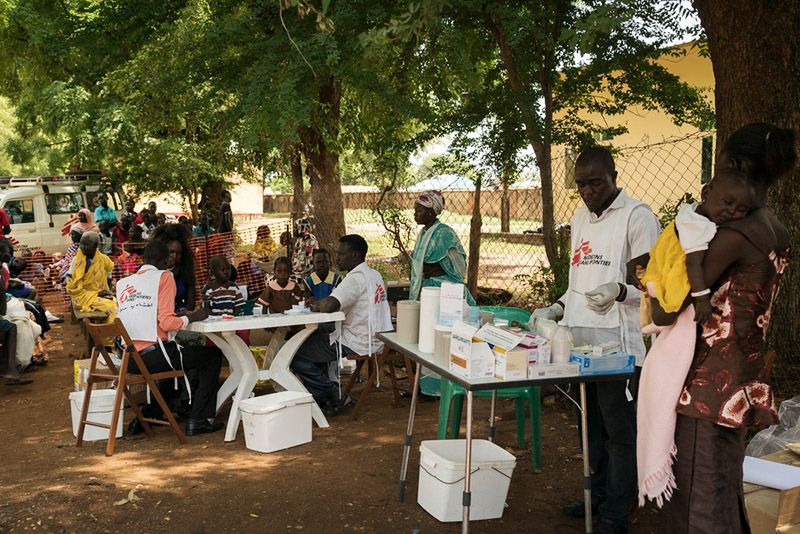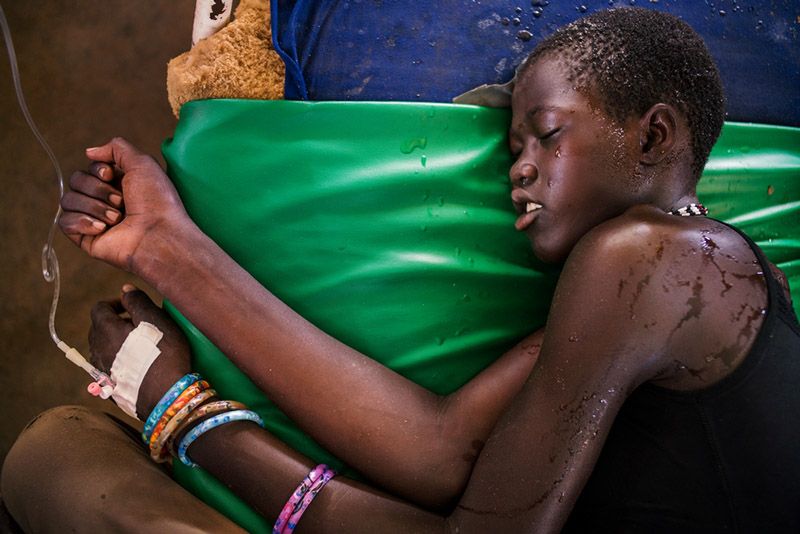Juba, South Sudan - Hundreds of thousands of people in South Sudan are at risk of contracting malaria in the coming months, in an annual "malaria peak" that begins in the country’s rainy season.
Malaria is one of the leading causes of sickness and death in South Sudan, especially among children. In 2016, MSF treated more than 300,000 cases of malaria in the country, 250,000 of which were during the three-month malaria peak, which can overwhelm medical workers.
In Aweil, Doctors Without Borders (MSF) teams are preparing to treat thousands of children for malaria. In Aweil State Hospital, where MSF manages the paediatric and maternity wards, MSF recently added 20 paediatric beds, resupplied the pharmacy and organized medical trainings to prepare its staff for the expected influx of severe paediatric cases.

These efforts may be sorely needed because during last year’s malaria peak MSF treated more than 5,500 children hospitalized for severe malaria in Aweil alone.
"During the malaria season, the hospital becomes overcrowded with patients suffering from complicated cases of malaria," said Aline Serin, MSF project coordinator in Aweil. "What is extremely worrying is that many local health centres have not yet received medicines and supplies to test and treat malaria in the Aweil area.
Without prompt testing and treatment, local people are more likely to develop severe malaria, which can be life-threatening."
In a primary health facility in Aweil Centre, for example, a clinical officer described to MSF how he lacks the necessary medicines and supplies to stabilise severe malaria patients.
Providing primary care at the community level is lifesaving and essential, yet many people in South Sudan must travel great distances for basic treatment.
The lack of medicines at the local level can increase the risk that children will develop severe malaria.

If parents know there are no drugs at their nearest health centre, they may wait to see whether or not their child's condition improves before deciding to start a long journey to a hospital.
It is a season when people cultivate crops, so spending days on the road is not an easy decision for parents who already struggle to provide enough food.
"People in South Sudan are struggling in the midst of ongoing conflict and other crises, yet preventing and treating malaria can make a real difference in their lives," Serin said. "People die just because they cannot get access to the basic treatment they need."
Find out more about MSF's work in South Sudan.